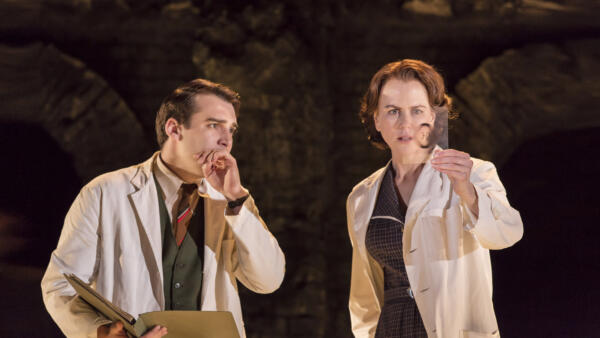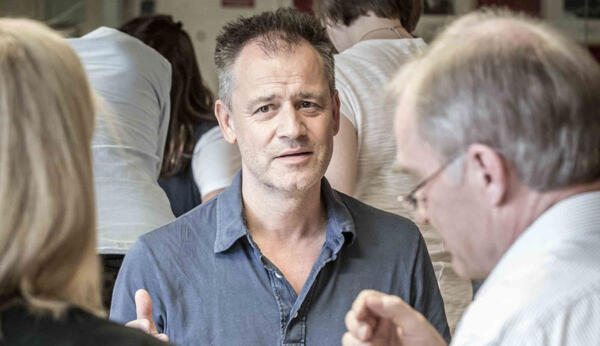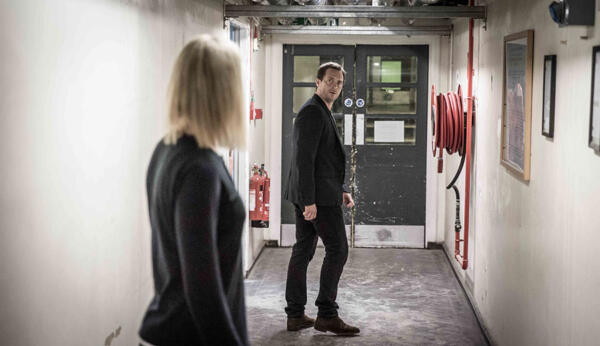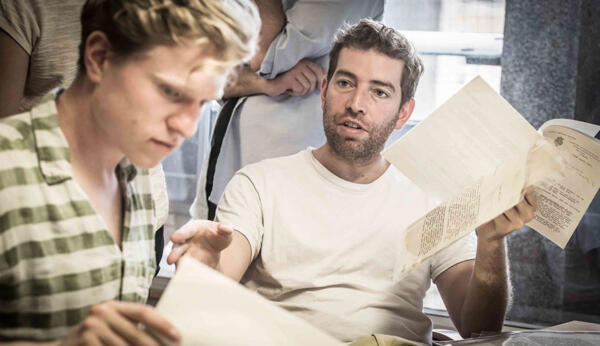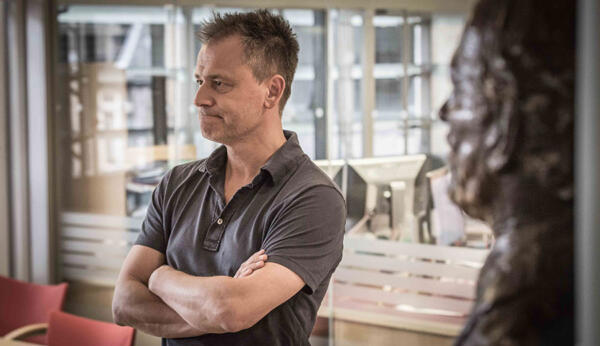Photograph 51 | Inside the Rehearsal Room
Photograph 51– Week Four, Day Three
Halfway through the fourth week of rehearsals, run throughs of the whole play – in costume with props and music – begin. They start well, Michael comments to the cast afterwards: ‘The first run through is always interesting for a director because it gives them a sense of how the cast will behave at a first preview in front of the public. You are a company that rise to an occasion. I enjoyed watching you as a group, as a collective, take control of it.’
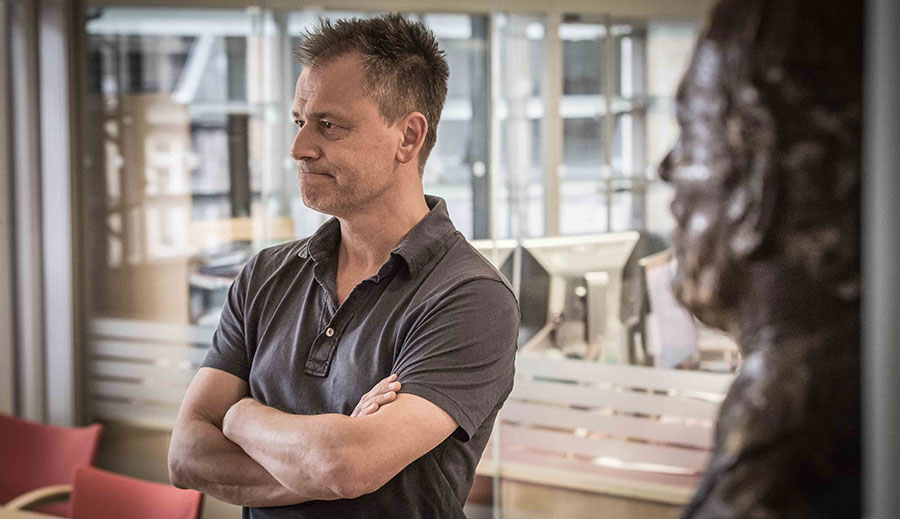
He proposes working for a couple of hours the following morning, before the next run through in the afternoon. ‘I’m going to do a series of “dos”…’ He then goes through his notes for the cast and crew, talking in general about scenes ‘landing’, lines being ‘dropped’ (or missed or fluffed), ‘dips’ in which the ‘energy disappeared’ and the need to ‘punch-up’ moments – ‘At a level that’ll be good enough for the Noël Coward. At the moment, I can feel some things disappearing into the darkness at the back of the theatre.’
Some actors are asked to ‘fill in gaps’ by picking up cues, to punctuate certain words and lines and to increase volume, especially when a new element to the story is being introduced. This is particularly important, says Michael, for ‘getting under the overhang’ at the Noël Coward. His notes encompass blocking – ‘I still think that would be more devastating if it was more still’ – to the delivery of lines: ‘I want you to learn those lines as one thought. I’d like you to know what to do technically in your head before going with the emotion of it.’
Michael’s notes also invite discussion. To Adam Cork: ‘Can I ask, do you not think we need a new sound cue there?’ To two actors: ‘Do you think we need to put a handshake in there?’ Michael will always check the cast are happy to proceed: ‘Do I need to rehearse that?’
At the end of the session, he thanks the company again: ‘It was a wonderful run – you were all in it. You need that level of focus. Whatever you channeled today, you need to find that again. You can’t sit back with this play.’ Michael wants to ensure that the subsequent run throughs are productive for both cast and crew and ultimately ‘move forward for you’.
